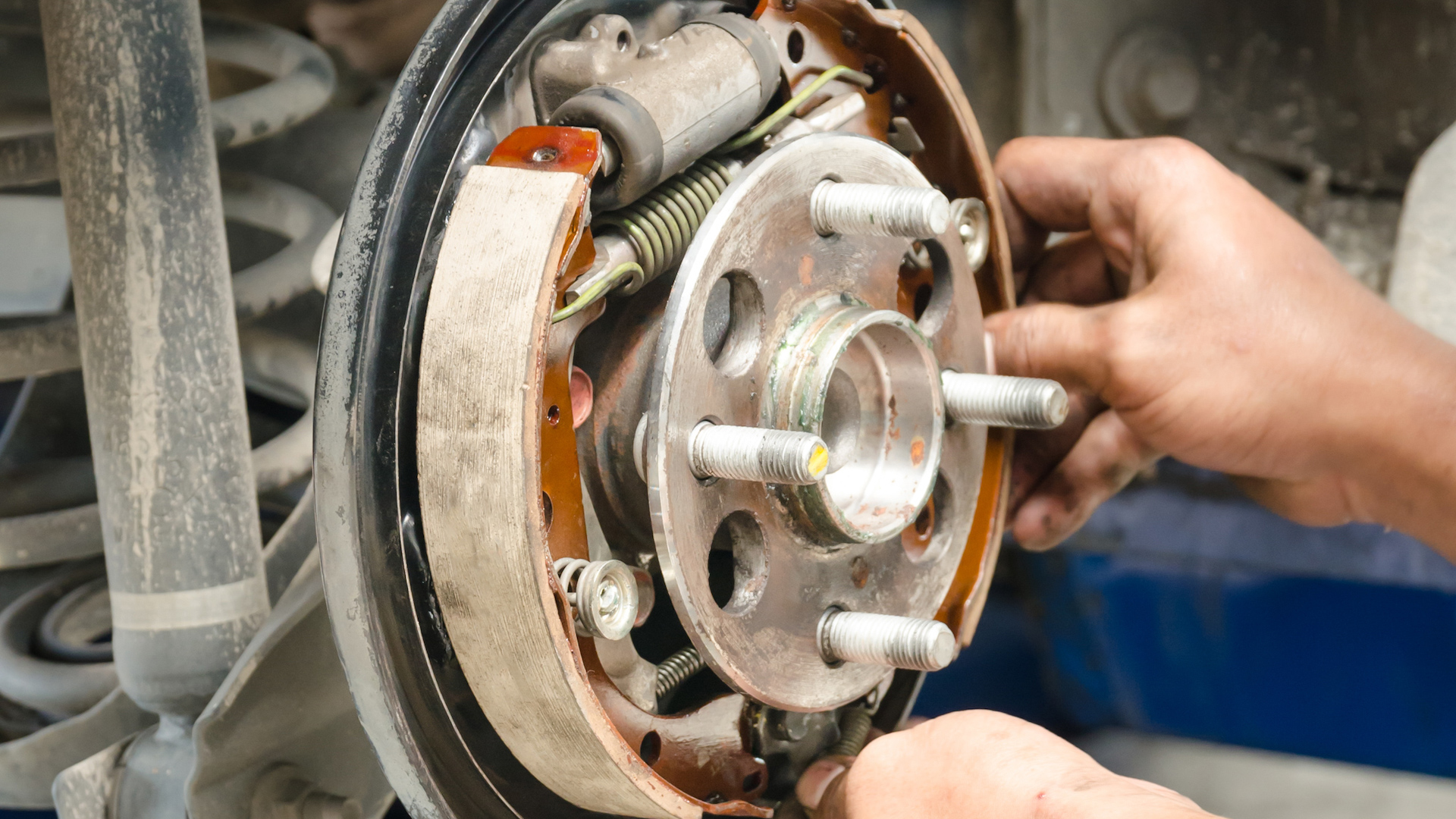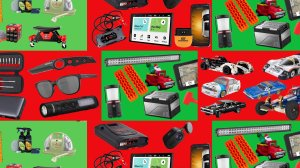

We may earn revenue from the products available on this page and participate in affiliate programs. Learn more ›
You might not give your car’s brakes much thought until they cause a problem, but there’s a whole world of things happening every time you press the brake pedal. Though most cars today come equipped with disc brakes, many still have drum brakes. That’s even more true for older vehicles, as disc brakes have only become truly ubiquitous in the last couple of decades.
If you think your car has drum brakes, there’s no reason to panic. Just because it’s an older technology doesn’t mean it’s not useful. In fact, even if your recently manufactured car has drum brakes on the rear, it probably has discs up front—where most of the car’s stopping power originates.
Drum brakes do have their limitations, however, so you’ll want to take the time to understand what they are, where they fall short, and what you can do about it. Let The Drive’s editors take you through some of those hoops in this post, and will shed some light on what’s going on when you press the brake pedal.
Let’s get started… or, you know, stopped.

How Do Drum Brakes Work?
Unlike disc brakes, which use a rotating disc with calipers and pads and which are generally considered to be more effective and safer, drum brakes use a rotating cylinder with brake shoes mounted inside to slow a vehicle.
When the driver presses the brake pedal, brake fluid generates hydraulic pressure and presses brake shoes against the rotating drum. The shoes are made with materials that generate friction, which is what ultimately slows the vehicle.
In the past few decades, disc brakes have overtaken drum brakes as the stopping force of choice for most new vehicle manufacturers. It’s still possible to buy a new car with drum brakes, but they’re generally only used on rear wheels with disc brakes on the front.
What Are The Different Types Of Drum Brakes?
There are three main types of drum brakes:
Leading-Trailing Shoe
In drum braking systems, the leading shoe is one that rotates in the direction of the drum. The trailing shoe is on the other side of the assembly, and pulls away from the rotating surface. Leading-trailing shoe braking systems are just as capable of stopping reverse motion as they are at stopping forward. This type of drum brake is typically used for rear-wheel applications.
Twin-Leading Shoe
Twin-leading shoe braking systems feature two leading shoes that make contact with the drum. These systems operate with what is known as a self-servo effect, in which the shoes only need to be pushed into contact with the drum to be effective. The shoes’ shape, combined with the rotation of the drum, naturally forces them outward into the drum. These systems need powerful springs to pull the shoe back when braking force is not necessary.
Duo-Servo
Duo-servo braking systems are a more advanced version of twin-leading shoe brakes. In this braking system, the two shoes are linked. When the leading shoe is pressed out by the wheel cylinder, the rotating force helps press the secondary shoe into the drum.

That Sounds Fancy. Why Are Disc Brakes Better?
Disc brakes carry several improvements over drum brakes, including:
Temperature Regulation
Brakes generate heat. It’s what they do. Disc brakes are better at dissipating heat and are able to maintain stopping force with repeated use.
Better Wet Performance
Because of their shape, drum brakes are susceptible to water pooling inside, which negatively impacts performance. In disc brake systems, the rotor can’t hold water and the brake pads act almost like a squeegee to wipe away moisture.
Less Likely to Lock
Disc brakes are less likely to lock up under heavy braking, which makes them safer during evasive maneuvers.
Explanation of Drum Brake Terms and Disc Brakes
Get educated.
Disc Brakes
Disc brakes use a caliper and two brake pads to apply pressure to a spinning disc. The caliper squeezes the pads onto the rotor, which generates friction and shows the wheels’ rotation.
Anti-Lock Brakes
Anti-lock brake systems, or ABS, work with the vehicle’s onboard computer to determine when a brake lock situation is about to occur. The system will then cause the brakes to pulse on and off rapidly, which allows the driver to slow the vehicle while remaining in control. If a lockup occurs, the vehicle will continue traveling in the direction it was to begin with.
Friction
Friction, which in the case of brakes is caused by either a brake shoe contacting the drum or a brake pad contacting the rotor. Friction is resistance to motion and generates a considerable amount of heat.
Brake Fade
Brake fade is a condition in which the braking system loses effectiveness, usually due to heat overload. The decrease in braking power is caused by a reduction in the friction generated between the shoes and brake drum.
Brake Fluid
Brake fluid is a liquid that a vehicle’s braking systems use to generate the “pushing” power it needs to squeeze the brake shoes onto the brake drum. Braking systems use brake fluid to generate hydraulic pressure, which helps move components and stop the vehicle.
Sometimes You Need a Certified Mechanic
As much as The Drive loves to put the “you” in do-it-yourself, we know that not everyone has the proper tools, a safe workspace, the spare time, or the confidence to tackle major automotive repairs. Sometimes, you just need quality repair work performed by professionals you can trust like our partners, the certified mechanics at Goodyear Tire & Service.
FAQs About Drum Brakes
You’ve got questions, The Drive has answers!
Q. Can I Upgrade My Drum Brakes?
A. Yes, you can. In fact, many people consider the drum-to-disc conversion as one of the best value upgrades you can do for a vehicle, especially one that will be driven hard. The costs and difficulty will vary, depending on your vehicle, but it’s not rocket science and should be able to be done at home over a weekend.
Q. Are Disc Brakes More Expensive To Buy And Maintain?
A. Disc brakes are more expensive, both to buy and to maintain. Prices have come down over time as the components have become more widespread, but disc brakes are still more expensive than drum brakes and can cause the initial cost of a vehicle equipped with them to be higher.
Q. Why Are Disc Brakes Safer Than Drums?
A. Disc brakes are considered to be safer for a bunch of reasons, mainly because they are:
- Less likely to lock up
- More capable of remaining useful when hot
- Not as susceptible to water intrusion
Q. Can I Upgrade My Drum Brakes?
A. Much like disc brakes, drums will let you know when something isn’t right. You may feel a vibration in the brake pedal or steering wheel, you may feel a looseness in the hand brake, or there may even be a scraping or squealing sound when you press the brake pedal.
Let’s Talk, Comment Below To Talk With The Drive’s Editors!
We’re here to be expert guides in everything How-To related. Use us, compliment us, yell at us. Comment below and let’s talk! You can also shout at us on Twitter or Instagram, here are our profiles.
Jonathon Klein: Twitter (@jonathon.klein), Instagram (@jonathon_klein)
Tony Markovich: Twitter (@T_Marko), Instagram (@t_marko)
Chris Teague: Twitter (@TeagueDrives), Instagram (@TeagueDrives)
Video

Featured Products
We know you have a choice when it comes to drum brake and brake-related products. There are several options for pads, fluid, and tools to help you maintain your brakes, but we’ve chosen three of our favorites to get you started. These are among the most highly reviewed, most affordable, and most useful products around.
Power Stop K200 Front-Rear Disc Brake Kit (Make-Model Specific)
Prestone Dot 3 Synthetic Brake Fluid
Got a question? Got a pro tip? Send us a note: guidesandgear@thedrive.com
